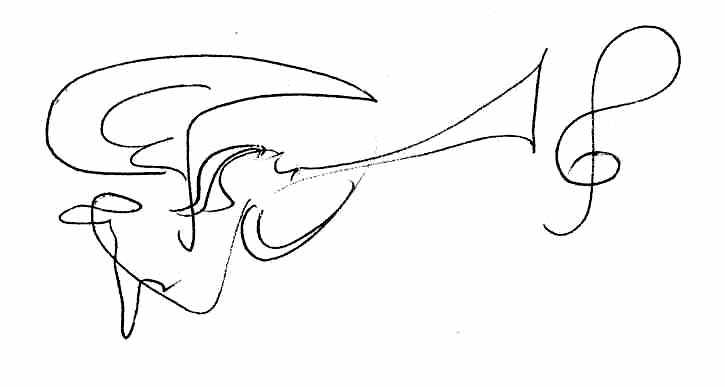Editor of this issue: Stasys Goštautas
Copyright © 2005 LITUANUS Foundation, Inc.

|
LITUANUS
LITHUANIAN QUARTERLY JOURNAL OF ARTS AND SCIENCES
Volume 51, No.1 - Spring 2005
Editor of this issue: Stasys Goštautas ISSN 0024-5089 Copyright © 2005 LITUANUS Foundation, Inc. |

|
IN MEMORIAM
ALGIRDAS LANDSBERGIS
STASYS GOŠTAUTAS
Fifty years ago, four young musketeers, penniless and without baggage, landed in Manhattan. Even if they lived in Woodhaven, Freeport, Long Island, Connecticut, or New Jersey, metaphorically, they lived in the shadow of Manhattan as if they had never left the magic island. They were stuck for the rest of their lives in Manhattan, the island where everything happened.
The four musketeers were Jonas Mekas, who lived most of his life in the Chelsea Hotel; his brother Adolfas Mekas, who still spends most of his time in New Jersey; Leonas Lėtas, who wrote good poetry in Connecticut; and Algirdas Landsbergis, who wrote a novel called Kelionė (Journey, 1954) in the spirit of the Beat generation, like Jack Kerouac's On the Road (1950) and the Spanish novel El camino (The Path, 1950) by Miguel Delibes. Landsbergis's novel is about a strange community of displaced persons (DPs) from all over the world - Armenians, Ukrainians, Roumanians, Italians, and of course, Lithuanians, who by accident of war, found themselves together in the barracks of postwar Germany.
Memory is the most beautiful monument we can build for a human being. Today, we remember Al, Algirdas Landsbergis, and the many memories his name brings to us. He had all sorts of projects and given the energy and enthusiasm with which he explained them to me, it was as if his creativity would never stop. Just a few days before the accident (because what happened was an accident - a happening of the Theatre of the Absurd - so closely related to his life and work) Algirdas called to tell me that he wanted to replace his community library lectures with more writing and editing. And that's how this issue of Lituanus was born.
And then, April 4, 2004, Algirdas stopped planning; and we are left to try to comprehend what happened to that beautiful human being, whose presence always made us happy.
Algirdas was full of life and energy, mapping out his next ten years. He wanted to concentrate on writing and editing, to make up for the loss of time giving lectures in the public libraries, which we enjoyed so much, because he was a dramatic speaker, a great communicator. He could make any subject exciting, like no other speaker I have memory of.
I was surprised to hear of all these projects that he was telling me, calling me almost every day and asking for addresses and for advice. He was rushing and that worried me, because that was not the calm-and-full-of-humor Al that I knew, and that was part of the fun of being with him, or reading his plays. He had this dramatic talent to make people think, laugh, enjoy - I have quite a few books of his with the angels and trumpets he drew to make me smile.
Two years ago (August 25, 2002) my son Vytas (Al was his godfather) and I made a special trip to New York to see Algirdas's best known - and to me his most universal - play, Five Posts in a Marketplace at The John Houseman Theatre Center (450 W. 42nd street). The play was about a bunch of revolutionaries fighting repression, guerrilla warfare against communists. The play could have happened anywhere, in a small country like Lithuania, as it was staged in Cleveland in 1957 - and with names like Antanas and Grazina, you could not expect it to be anywhere else - or in a Banana Republic, as it was staged in 1961 in New York.
The theme of guerrilla war versus tyranny is of universal dimensions and is an example of human resistance against violence and the superiority of passive resistance over warfare. It could happen anywhere, Lithuania, Bosnia, or the Middle East. It was symbolic that we finished our afternoon at the theater in a restaurant called West Bank; because the play could very well have happened there too.
Other recent productions of his plays include his free adaptation of Dostoyevsky's The Idiot (Dallas Theater Center & Trinity Repertory Co. in Providence, Rhode Island) under the direction of Jonas Jurašas, 1989.
Algirdas Landsbergis has authored thirteen plays, a novel, and two collections of short stories. His writings have been translated into seven languages; and soon will add another, Spanish. His plays were produced in Lithuania, United States, Canada, Europe, Africa and Australia. He has written scripts for the movies, TV and Radio. A team of Finnish filmmakers made a film about the two famous Landsbergis's - Algirdas and Vytautas - the latter the president of the Supreme Council of Lithuania.
For many decades, he was the main and often sole representative of Lithuania to the American Pen in exile, where you could hear the voice of Lithuanian writers. Thanks to his efforts, and those of Clara Gyorgyey, Tomas Venclova, Romualdas Lankauskas and the writer of this note, when the time came, Lithuania was accepted as a regular member of International Pen in 1989, the first of the so-called Soviet Republics. While chairman of P.E.N. in Exile (U.S.), he took part in the selection for the Nobel Prize for Literature.

Angels - Algirdas Landsbergis